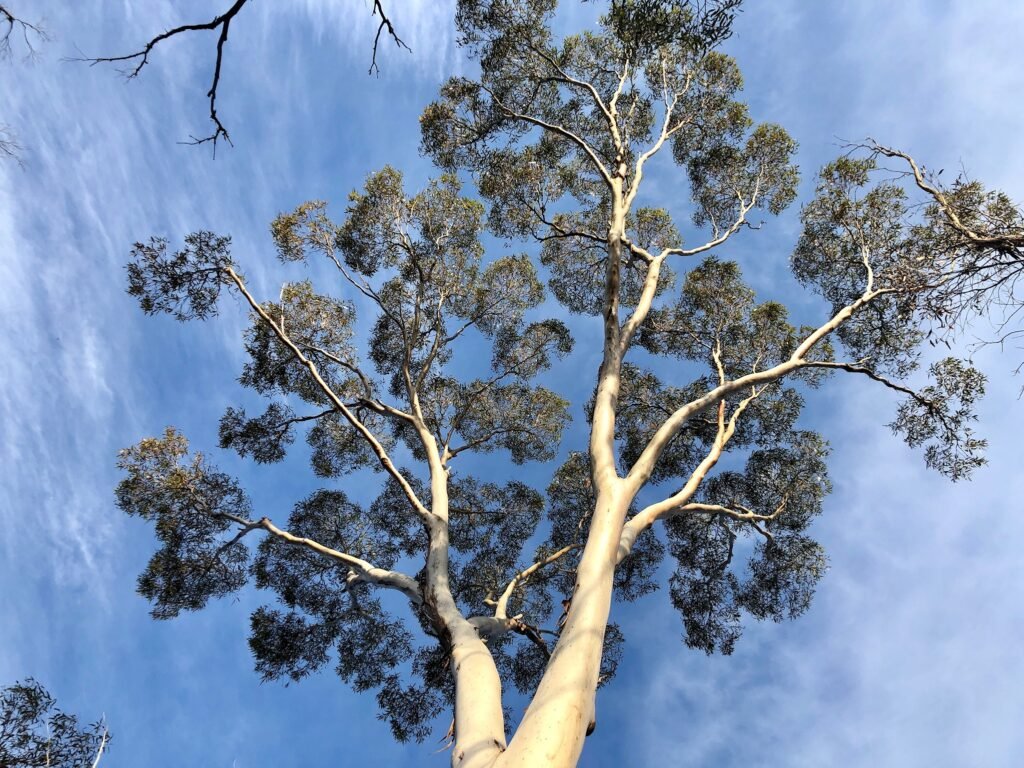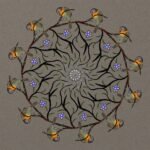Nature & Forest Bathing
The clearest way into the Universe is through a forest wilderness.
John Muir
Forest bathing, also known as Forest Therapy, is a gentle & easy practice, carefully orchestrated to take you on a journey. It can be in any natural environment; the forest, the beach, wetlands or the desert, as well as urban outdoor spaces, such as parks and botanic gardens.
We wander, we sit, we are curious, we play. Or, we rest and do nothing at all.
- Gentle & easy stroll, usually covering around 1-2 km.
- Experiences typically last around 2-3 hours.
- You are skillfully guided by an experienced, trained and qualified Guide.
- Our walking is interspersed with stopping, and standing or sitting on the ground for around 10-20 mins at a time.
- We begin by opening up and awakening our senses.
- We offer you invitations to engage with your surroundings.
- We move slowly, and are mostly in silence.
- We gather as a group in a circle to share with words, movements, or simply in silence.
- We end with a simple, informal tea ceremony to complete our experience.
- Everything is optional, you always have self-direction. You are welcome as you are.
- Group walks have a maximum of 12 people.
See our Retreats, held internationally (Bali, Namibia, Kenya, Ecuador). - Contact us to arrange a private experience for yourself & your friends or interest group, or for a special occasion such as a birthday.
“The entire ocean is effected by a pebble.” – Blaise Pascal

About Nature & Forest Bathing
Our practice of nature and forest bathing is a weaving together of threads of influence from multiple practices. It is is part-inspired by the Japanese Shinrin-Yoku, and significantly also Deep Ecology, Jungian psychology, Joseph Campbell’s psychology, Way of Council, and Native American Vision fasting (a.k.a. Vision quest). It is a heart-centred pathway to health and wellbeing for both humans and the ‘more-than-human-world’.
- Shinrin-Yoku was developed by the government in Japan in the 1980s as an antidote to over-work. Shinrin means forest, and yoku means bath, and this is the inspiration for the name of our practice, ‘forest bathing’. The main focus is the physiological health benefits – stress release, relaxation, cardiovascular and mental health benefits. The Japanese government and healthcare providers recognise it as a legitimate form of healthcare and prescribe it as preventative and complementary therapy for a range of conditions, including anxiety, depression, and chronic stress.
- Carl Jung described the process of individuation; a lifelong journey that involves ongoing self-reflection, self-awareness, and self-acceptance; a path towards psychological wholeness and a greater sense of connection with the world around us. Joseph Campbell talked about a ‘hero’s journey’; a journey beyond the familiar where a person returns with the gifts of wisdom and healing.
- The fields of deep ecology and Native American vision fasting, or vision questing, take us further into a relational practice of connection, of reciprocity. We focus very much on developing relationships with Nature; the “more-than-human-world”. This naturally leads us to a deeper (re)connection with ourselves and others, and a sense of belonging to this web of inter-being; experiencing ourselves as part of nature, not separate from it.
Many surviving indigenous and traditional cultures, such as Aboriginal, Native American, African and Japanese cultures naturally have a connection and relationship with nature to this day.
- Aboriginal people of Australia consider that people belong to the land. They have a connection and kindredness with all living beings, as well as what we might consider ‘inanimate’ objects.
- Japanese people have a cultural underpinning of Shinto and Zen, and that naturally disposes them to seeing all parts of the landscape, such as trees, rocks, streams, mountains, the ocean, etc., as having a life force, and as beings they can connect to.
- Saan Bushmen of the Kalahari Desert in Southern Africa and the Hadza people of Northern Tanzania have a spiritual connection to nature and feel that everything in the world is interconnected.
We are all descended from indigenous people; people connected to Land, and we knew nature as home. Most modern cultures don’t have this cultural foundation anymore. Some elements of this walk will give us a chance to explore these connections.
“And forget not that the earth delights to feel your bare feet and the winds long to play with your hair.” – Khalil Gibran
- improve general health
- balance the nervous system
- improve cardiovascular health; hypertension, coronary disease
- improve respiratory function
- improve sleep
- improve symptoms of psychological & physiological stress
- lead to greater happiness, well-being & life satisfaction
- increase social connectedness
- improve cognitive function, including improved memory recall
- improve immune system function, and lead to increase in Natural Killer cells due to phytoncides (volatile organic compounds emitted by trees)
- bring about awe, which increases wellbeing & can give a sense of meaning or purpose.
There are a growing number of research studies investigating the benefits of nature time, including forest and nature therapy. A good starting point is:
Shinrin-Yoku (Forest Bathing) and Nature Therapy: A State-of-the-Art Review.
By Margaret M. Hansen, Reo Jones, and Kirsten Tocchini. International Journal of Environmental Research and Public Health – August 2017.


Albert Einstein
Mary Davis
Lao Tzu
Terms & Conditions for participating in all walks, retreats, safaris & programs

